37
6
You are to print this exact text:
ABABABABABABABABABABABABAB
BCBCBCBCBCBCBCBCBCBCBCBCBC
CDCDCDCDCDCDCDCDCDCDCDCDCD
DEDEDEDEDEDEDEDEDEDEDEDEDE
EFEFEFEFEFEFEFEFEFEFEFEFEF
FGFGFGFGFGFGFGFGFGFGFGFGFG
GHGHGHGHGHGHGHGHGHGHGHGHGH
HIHIHIHIHIHIHIHIHIHIHIHIHI
IJIJIJIJIJIJIJIJIJIJIJIJIJ
JKJKJKJKJKJKJKJKJKJKJKJKJK
KLKLKLKLKLKLKLKLKLKLKLKLKL
LMLMLMLMLMLMLMLMLMLMLMLMLM
MNMNMNMNMNMNMNMNMNMNMNMNMN
NONONONONONONONONONONONONO
OPOPOPOPOPOPOPOPOPOPOPOPOP
PQPQPQPQPQPQPQPQPQPQPQPQPQ
QRQRQRQRQRQRQRQRQRQRQRQRQR
RSRSRSRSRSRSRSRSRSRSRSRSRS
STSTSTSTSTSTSTSTSTSTSTSTST
TUTUTUTUTUTUTUTUTUTUTUTUTU
UVUVUVUVUVUVUVUVUVUVUVUVUV
VWVWVWVWVWVWVWVWVWVWVWVWVW
WXWXWXWXWXWXWXWXWXWXWXWXWX
XYXYXYXYXYXYXYXYXYXYXYXYXY
YZYZYZYZYZYZYZYZYZYZYZYZYZ
ZAZAZAZAZAZAZAZAZAZAZAZAZA
Specs
- You can print all lowercase instead of all uppercase. However, case must be consistent throughout the output.
- You may print one extra trailing linefeed.
Scoring
Since this is an alphabet wave that fluctuates to a small extent, your code should also be small in terms of byte-count. In fact, the smallest code in terms of byte-count wins.
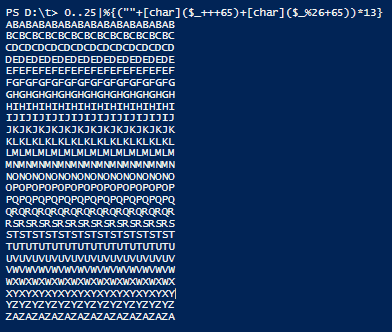
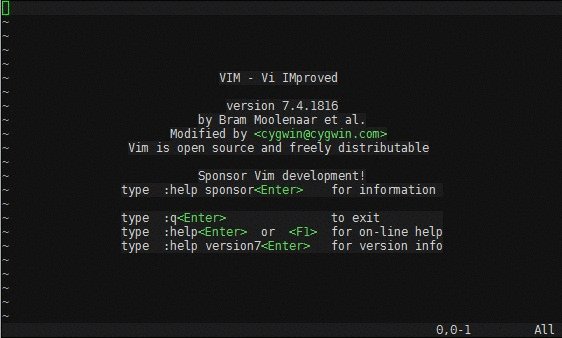
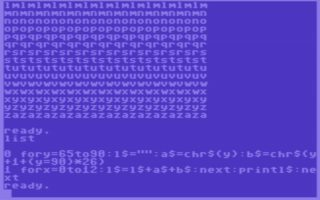
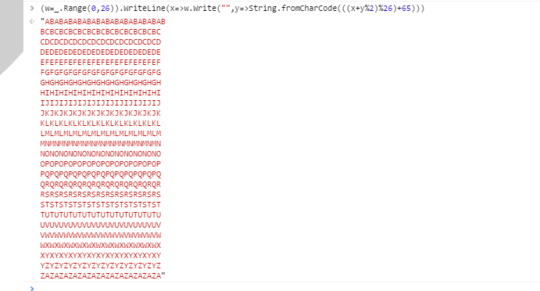
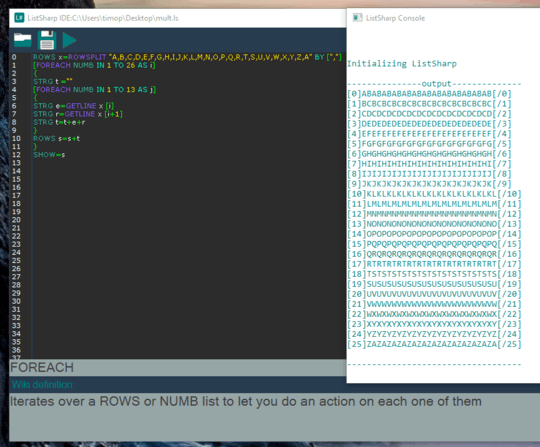
39Seriously, another alphabet challenge? – Nathan Merrill – 2016-08-09T23:33:12.047
6@NathanMerrill As numerous as they are, I don't think they are worthy of downvotes. (I do not imply you downvoted, I am merely saying.) – Conor O'Brien – 2016-08-09T23:34:07.570
14As long as the patterns are sufficiently different, I don't think it matters if we use the alphabet, decimal digits, asterisks and underscore, etc. – Dennis – 2016-08-09T23:35:42.053
Can I use function return? – Conor O'Brien – 2016-08-09T23:37:47.007
@ConorO'Brien No, the same with the other alphabet challenges. – Leaky Nun – 2016-08-09T23:38:34.773
9@Dennis regardless of the characters used, its these type of "pattern" challenges that are getting overused, IMO. I don't think its offtopic, but I would enjoy some fresh air. – Nathan Merrill – 2016-08-09T23:40:33.203
1Merely generating the alphabet makes for overlapping code in Python for all these challenges. – xnor – 2016-08-10T01:40:10.893
13It's clear there's no more demand for alphabet challenges - only 39 people answered in the first 15 hours... – trichoplax – 2016-08-10T15:23:58.050
3These challenges instantly go HNQ and the result is a massive amount of votes for an otherwise meh challenge – Insane – 2016-08-11T18:09:52.347
@Insane If it is a meh challenge it would not have gone HNQ – Leaky Nun – 2016-08-11T18:17:34.650
6@LeakyNun Lots of meh challenges go to HNQ. The HNQ algorithm favors answers. On our site, that doesn't work so well, because the number of answers to a challenge is proportional to the triviality of the challenge. – Mego – 2016-08-12T09:15:01.567
1This might not be a Programming Puzzle, but it´s definitely Code Golf. Four answers with different approaches for some languages - I like the diversity. – Titus – 2016-11-11T17:00:41.137
Can I use a leading linebreak instead of a trailing one? – Titus – 2016-11-11T17:01:11.493